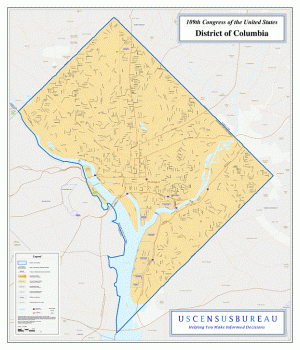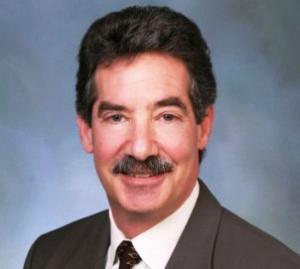The DC city council has voted to approve marijuana decriminalization. There's still one more vote to go, and some bad amendments, but marijuana reform is coming to the nation's capital.
Historic sentencing reform legislation has advanced in the Senate, as the Judiciary Committee today approved the Smarter Sentencing Act. Companion legislation is also pending in the House.
In an unprecedented move, the Justice Department today called on defense attorneys to suggest more inmates who could apply for clemency. The call came in a speech from Deputy Attorney General James Cole.
In a CNN interview Friday, President Obama elaborated on his recent remarks on marijuana policy. He declined to say whether he supported rescheduling it, but said the criminalization of users was a big concern.
Project CBD takes on the skeptics on cannabidiol, medical marijuana bills move in Guam, but not in Michigan, and California counties continue to slug it out over dispensaries and grows.
Two Southern California men have been killed in the past week by police officers waging the war on drugs.
Police in San Diego County last Friday shot and killed a drug suspect they feared had a gun. He didn't.
Some cops like to party too hearty. Others just want a little pocket change. This week, we have four law enforcement miscreants.
Big news on a couple of fronts regarding federal sentencing and federal prisoners, the DC council is set to approve decriminalization, Minnesota's welfare drug testing law gets some pushback, and more.
The president makes some delphic comments on marijuana policy, some of his congressional critics get ready to go after him for such comment next week, Dutch cities want legal marijuana growing, the Welsh government funds a harm reduction drug testing program, and more.
Short-sighted Tories slam a Welsh harm reduction drug testing program, DC could decriminalize marijuana possession tomorrow, Oregon's governor thinks the legislature should legalize it, South Dakota legislators get busy with bad bills, and a South Dakota Indian reservation is thinking about legalization, and more.
Legalization proves profitable for Colorado's coffers, decrim moves closer in DC, more drug test bills get filed, Vermont attempts to do something about its opioid problem, a crime lab scandal brews in Florida, and more.
Alaska will vote on marijuana legalization this summer, the DC council gives preliminary approval to a decriminalization bill, the farm bill with the hemp amendment intact passes Congress, advocates urge India's parliament to act on access to pain medications, and more.
The District of Columbia city council moved another step closer to decriminalizing marijuana possession in the nation's capital Tuesday, approving a bill to do just that on an 11-1 vote. But it only acted after approving last-minute amendments that would make public pot-smoking a criminal offense and give police the right to conduct vehicle searches if they smell marijuana.
A final vote on the bill will come next month. It is expected to pass and already has the support of Mayor Vincent Gray.
While advocates greeted the council vote with praise, the accolades were tempered by concerns about the council's adoption of the late amendments. And looming over it all is the prospect of outright legalization in the District, either through a bill introduced by Councilmember David Grasso that is now before the council or through an initiative that is now awaiting language approval from District officials.
"This is a major victory for advancing the cause of racial justice in DC," said Grant Smith, policy manager with the Drug Policy Alliance. "The war on marijuana is largely a war on people of color and the DC council is saying enough is enough."
"As a former prosecuting attorney, I call this a step forward for the cause of promoting public safety," said Dan Riffle, director of federal policies for the Marijuana Policy Project (MPP). "Arresting and prosecuting adults for possessing a less harmful substance than alcohol is a waste of law enforcement and court resources. Police and prosecutors should focus their time and attention on addressing actual threats to public safety."
The "Marijuana Possession Decriminalization Amendment Act of 2014 (Council Bill 20-409)" would eliminate the threat of arrest for possessing marijuana impose a $25 civil fine for possession as well as forfeiture of the marijuana and any paraphernalia used to consume or carry it. But the amendments approved Tuesday criminalize public possession and allows those vehicle searches.
The bill was introduced after the publication of an ACLU report and a Washington Lawyers' Committee on Civil Rights and Urban Affairs report highlighting the disparate rate of arrests of blacks over whites for marijuana possession in the District. The reports found that blacks are arrested eight times as often as whites for the offense, even though rates of use among both races are thought to be relatively similar.
But advocates complained that the amendments adopted Tuesday would only serve to perpetuate racially biased marijuana law arrests, not end them. Some called for a solution to the problem by having the council pass the legalization bill.
"These last-minute amendments will simply expand stop-and-frisk policies in the District and will do nothing to fight the horrible racial disparities in marijuana enforcement," said MPP's Riffle. "We need to regulate and tax marijuana like alcohol, and take it out of the hands of criminals and drug cartels. Marijuana should be sold by legitimate businesses in licensed, regulated stores, not by criminals on our street corners. The sooner the council takes up Councilmember Grosso's bill, the better."
The Drug Policy Alliance will be working to undo the amendments when the council takes a final vote on the bill next month, Smith told the Chronicle Tuesday night.
"There is one more opportunity to change the criminalization of public smoking when the council considers and votes one more time on the bill," he said. "We hope to work with Councilmember Tommy Wells and our community partners here in DC to pressure the council to reverse its decision to criminalize public consumption and treat public smoking as a civil offense instead."
Looming just behind the decriminalization fight is outright legalization. Public opinion in the District appears ready to make the leap. A Washington Post poll last year had support for legalization at a healthy 63%.
While some groups, like the Marijuana Policy Project, are working the council in an effort to move a bill, others favor the initiative process, especially if the council fails to act.
"As a DC resident, I'm proud the Council took an important step today to stop the expensive, time-consuming and racially discriminatory practice of putting people into handcuffs just for possessing marijuana," said Tom Angell of Marijuana Majority."But while this is clearly movement in the right direction, this legislation would unfortunately leave marijuana production and profits illegal and largely in the hands of street gangs and criminals. A clear majority of District voters supports legalizing marijuana, and that's why we're likely to approve a ballot initiative this November that would completely remove penalties for possession and allow residents to grow up to six plants. Hopefully such widespread voter support will spur the council to adopt more comprehensive legislation taxing and regulating the marijuana trade at some point soon."
Adam Eidinger of the DC Cannabis Campaign is the public face of the DC marijuana legalization initiative. The veteran District political gadfly had kind words for the decriminalization effort, but signaled it wouldn't make any difference to the initiative campaign.
"The compromise on the decrim bill wasn't that bad. The big deal is that it passed, and it passed with a veto-proof majority, and the mayor will sign it. We should be celebrating," he said, "But I'm on the war path. Decriminalization is a stepping stone toward ending the raging stream of marijuana arrests; it's a nice place to stand, but you don't want to live there, because you're going to fall in the water eventually. And I mean get arrested," he clarified.
"Look, decriminalization will get rid of a lot of arrests, but there will still be marijuana arrests and people engaging in illegal activity when they want to buy it," Eidinger continued. "And they're exposed to heroin and other hard drugs. You need to separate cannabis from all the hard drugs and create a legal cultivation and distribution system. That hurts the bulk hard drug dealers. If you care about reducing drug use and addiction, you create a massive harm reduction with marijuana legalization first. I don't have sympathy for the illicit market for heroin, but for the illicit cannabis market, it's not deadly."
The legalization initiative campaign continues to aim at the November ballot, Eidinger said, but still needs to secure funding if it's going to be successful. A key date for the initiative will be February 25, when the DC Board of Elections decides whether to approve the initiative language for signature-gathering.
"If the language is good, that's a big deal," Eidinger said. "I think some of the big money has been holding off until that happens. We're doing this on a shoe string and have raised $30,000 in six months, but we do have the money for signature-gathering locked in, thanks to Dr. Bronner's Magic Soaps. We will do paid and volunteer signature-gathering."
Marijuana law reform is coming to the District of Columbia. And the decriminalization bill is only the beginning.
back to top
The Senate Judiciary Committee Thursday gave its imprimatur to the Smarter Sentencing Act, approving the bill and sending it on to a Senate floor vote. The bill is designed to reduce the federal prison population and decrease racial disparities and, if passed by Congress, would mark the biggest federal sentencing reform in decades.
The act,
Senate Bill 1410, cuts mandatory minimum sentences for drug law violations, makes retroactive the crack cocaine sentencing reforms passed in 2010, and gives judges greater discretion to sentence below mandatory minimums when the facts of the case warrant it.
The act was cosponsored by a bipartisan group of senators from across the political spectrum, including Senators Mike Lee (R-Utah), Rand Paul (R-Kentucky), Jeff Flake (R-Arizona), Ted Cruz (R-TX), Patrick Leahy (D-VT), Dick Durbin (D-IL), Carl Levin (D-MI) and Sheldon Whitehouse (D-RI).
"The tide has turned against punitive drug policies that destroy lives and tear families apart," said Bill Piper, director of national affairs at the Drug Policy Alliance (DPA). "From liberal stalwarts to Tea Party favorites, there is now consensus that our country incarcerates too many people, for too much time, at too much expense to taxpayers."
The sentencing reform group Families Against Mandatory Minimums (FAMM) also welcomed the bill's progress, but said that it was not happy with some changes included as the bill made its way through the committee.
"We strongly support the underlying bill; however, we have deep concerns about changes made during markup. These changes include new mandatory minimums for domestic violence and sexual abuse that are unjustified and opposed by the very victims they are supposed to protect," the group noted.
"Although FAMM would prefer the total repeal of mandatory minimum sentences, this bill is a necessary compromise that will help address many of the drivers of our exploding prison populations. The reform package is bipartisan, reasonable, and will save taxpayers billions of dollars by locking up fewer nonviolent drug offenders for shorter periods of time. It also focuses on over-criminalization, a monster that no one has been able to get a handle on, but one that must be brought under control."
While the bill has passed out of the Senate Judiciary Committee, companion legislation is languishing in the Republican-controlled House. House Bill 3382, sponsored by Rep. Raul Labrador (R-ID) and 15 cosponsors, is currently before the House Judiciary Committee, chaired by Rep. Bob Goodlatte (R-VA). Advocates are calling on Goodlatte, who helped establish a House Over-Criminalization Task Force last year, to move on the Smarter Sentencing Act.
"Seven of the 10 members of the Over-Criminalization Task Force currently support mandatory minimum sentencing reform, and all of the Task Force members have shown interest in getting a handle on our enormous criminal code," said FAMM's Julie Stewart. "The interest is there, and the time is right -- this is something that Congress could actually do this year."
The favorable Senate Judiciary Committee vote -- it passed 13-5 -- came even as federal prosecutors came out in opposition to it. In a Monday letter to Attorney General Holder, the National Association of Assistant US Attorneys opposed reforms to mandatory minimums.
"We do not join with those who regard our federal system of justice as 'broken' or in need of major reconstruction," the organization said. "Instead, we consider the current federal mandatory minimum sentence framework as well-constructed and well worth preserving."
That sparked a tough rebuke from the Drug Policy Alliance.
"It is disgraceful that prosecutors continue to defend a criminal justice system that is profoundly racially unjust and cruel," said Piper. "While support for major reform is growing in both political parties, many prosecutors are still living in the dark ages."
back to top
In an unusual move, the Obama administration Thursday told defense lawyers they should suggest more inmates serving time on drug charges who might be deserving of clemency.
That would be a dramatic expansion of the Obama administration's use of the pardon and clemency power to free low-level non-violent drug offenders. At year's end, Obama pardoned eight long-serving crack cocaine offenders.
In a speech to the New York State Bar Association, Deputy Attorney General James Cole told attendees that the Justice Department wanted more names to forward to the White House -- and that the defense bar could be of assistance.
"This is where you can help," he said. "You each can play a critical role in this process by providing a qualified petitioner -- one who has a clean record in prison, does not present a threat to public safety, and who is facing a life or near-life sentence that is excessive under current law -- with the opportunity to get a fresh start."
Cole said that despite moves to reduce the number of low-level non-violent drug offenders in federal prisons, many remain, serving long sentences they would not be receiving in the wake of the passage of the Fair Sentencing Act and recent Justice Department directives to seek lower drug sentences.
"This is not fair, and it harms our criminal justice system," said Cole. "To help correct this, we need to identify these individuals and get well-prepared petitions into the Department of Justice."
The Justice Department is seeking to identify prisoners in circumstances similar to those of the eight who were granted clemency so it can recommend them for clemency as well, he said. The federal Bureau of Prisons will also begin advising inmates of the opportunity to apply, he said.
back to top
In an interview with CNN Friday, President Obama expanded on his remarks regarding marijuana made in a recent New Yorker interview. In that latter interview, Obama described marijuana as not being any worse than alcohol, and CNN interviewer Jake Tapper pressed him on those comments.

President Barack Obama (whitehouse.gov)
When Tapper asked him about rescheduling marijuana out of Schedule I, the most restrictive classification, he declined to take a position, instead trying to pass the buck to Congress.
"First of all, what is and isn't a Schedule I narcotics is a job for Congress," he said.
That comment was misleading. While Congress created the drug schedules and placed drugs in different schedules when it passed the Controlled Substances Act in 1970, the act gives the executive branch the power to reschedule drugs. In fact, the DEA has denied three separate petitions seeking to reschedule marijuana.
"I stand by my belief based on the scientific evidence that marijuana for casual users, individual users, is subject to abuse, just like alcohol is and should be treated as a public health problem and challenge," he said.
The president added that his main concern was the criminalization of marijuana use.
"My concern is when you end up having very heavy criminal penalties for individual users that have been applied unevenly and, in some cases, with a racial disparity," he said. "I think that is a problem. We're going to see what happens in the experiments in Colorado and Washington. The Department of Justice under Eric Holder has said that we are going to continue to enforce federal laws."
Obama added that the federal government doesn't have enough manpower to bust people "smoking a joint on the corner." But it doesn't need to; more than 90% of all marijuana arrests are made by state and local police, not federal law enforcement.
Instead of concentrating on individual users, Obama said, the federal government was working to prevent undesired consequences, such as out-of-state drug trafficking or violence, from "creeping out of this experiment that is taking place."
The president also issued a "cautionary note" about the possible consequences of a commercialized marijuana industry and warned legalization proponents to watch out for increased use levels.
"I think they have to ask themselves some tough questions, too," he said. "Because if we start having a situation where big corporations with lots of resources and distribution and marketing arms are suddenly going out there, peddling marijuana, then the levels of abuse that may take place are going to be higher."
back to top
Project CBD takes on the skeptics on cannabidiol, medical marijuana bills move in Guam, but not in Michigan, and California counties continue to slug it out over dispensaries and grows. Let's get to it:
NationalOn Monday, Project CBD struck back against criticism from Project SAM. Project CBD's Martin Lee penned a lengthy rebuttal of charges made in a recent Project SAM "fact sheet" seeking to justify continuing marijuana prohibition by misinforming the public about cannabidiol and THC. It's worth reading in its entirety.
California
On Tuesday, Lake County supervisors voted to put their cultivation ordinance to the voters. The grow ordinance, passed in December, bans outdoor cultivation in community growth boundaries; limits plant numbers on parcels larger than one acre outside of community growth boundaries to six mature or 12 immature plants; prevents grows on vacant parcels; limits indoor grows to 100 square feet or less; keeps outdoor cultivation 1,000 feet from schools, parks or other facilities serving children, and 100 feet from water bodies; offers quicker abatement; and makes the Lake County Sheriff's Office responsible for enforcement. But last month, the Community Alliance to Ban Illegal Cannabis Cultivation submitted substantially more than enough signatures to force a vote. This will be the third referendum the county has faced on medical marijuana rules.
Also on Tuesday, Fresno County supervisors voted to close a loophole in their county-wide cultivation ban. The most recent ban ordinance had neglected to cover cultivation in areas zoned for manufacturing, but the board eliminated that oversight Tuesday. Medical marijuana advocates say they're not giving up their fight. They already are gathering signatures for a referendum to overturn the bans. Fresno Cannabis has a petition on its website and needs 20,130 signatures by Thursday to halt the ban until county supervisors reverse their vote or a countywide election is held.
Last Thursday and Friday, San Bernardino County police raided dispensaries in Needles as part of a bistate enforcement operation with Arizona authorities. They seized 445 pounds of medical marijuana. The cops said people were using fake California patient IDs to purchase marijuana when they weren't California residents, and that some dispensary operators actually resided in Arizona.
Also on Tuesday, Tuolumne County supervisors scrapped an ordinance that would have banned dispensaries and outdoor grows. The unanimous decision came after the planning commission voted 6-1 to table its plan after dozens of citizens showed up to speak against the ordinance -- and none spoke for it.
Delaware
On Tuesday, state officials finalized regulations for a single dispensary. The Marijuana Policy Project has complained that it is limited to growing 150 plants, "too few to meet patients' needs," the group says. But the governor and the Department of Health and Human Services are refusing to remove the cap.
Guam
Last Saturday, the Guam Senate voted to put medical marijuana before the voters. The bill must still be signed (or at least not vetoed) by the governor before it heads to the ballot. Bill sponsor Sen. Tina Muna Barnes amended an earlier version of the measure to allow for a popular vote after hearing demands for it during debate in recent weeks.
Michigan
Last Friday, a key legislator said he was blocking medical marijuana bills. One bill would allow for dispensaries, while the other would allow for edibles. But Senate Majority Leader Randy Richardville (R-Monroe) said he would block any movement. "I'm going to sit on them for awhile," he said. "We don't want this ballot initiative to take over. I believe a vast majority of people who voted for it believed we were talking about prescription type of marijuana. Unless it's a real strict distribution system, we're not going to take a chance. At this point, I'm not in favor of dispensaries."
New Mexico
Last Friday, a Santa Fe man filed suit against the Department of Health claiming it has refused to issue him a cultivation license. Mark Springer, owner of Medical Marijuana, Inc., is seeking to force the department to reopen the application period for eligible marijuana growers and permit them to grow more of the plant.
Utah
On Monday, a bill that would allow the use of CBD cannabis oil for epileptic kids was filed at the state house in Salt Lake City. Introduced by Rep. Gage Froerer (R-Ogden), House Bill 100 amends Utah law to allow people to possess the hemp oil extract and give it to minors without being charged with violating the state's controlled substances laws. The bill also requires the Utah Department of Health to issue parents a 'hemp extract registration card' to bring the cannabis oil across state lines into Utah.
[For extensive information about the medical marijuana debate, presented in a neutral format, visit MedicalMarijuana.ProCon.org.]
back to top
California police have shot and killed two people in separate drug law enforcement incidents in the past week. Luis Morin of Coachella and Mark Ayala of El Centro become the 7th and 8th persons to die in US domestic drug law enforcement operations so far this year.
According to the
San Bernardino Sun, citing police sources, the first killing, which occurred last Monday night, happened when a Riverside County sheriff's deputy attempted to arrest Morin on felony warrants.
"When the officer attempted to take the subject into custody, an altercation occurred, which resulted in an officer-involved shooting," Deputy Armando Munoz said.
Morin died at the scene, according to the coroner's office.
Police didn't specify what the warrants were for, but later in the week, Morin's family members told KESQ TV News that one was for possession of a controlled substance with intent to sell and the other was for grand theft auto. The family also expressed anger with the unnamed deputy who shot Morin.
"He did not come to serve a warrant," said Morin's father. "He came with bad intentions. I would love to see him prosecuted."
The deputy has been placed on paid administrative leave pending an investigation by Riverside County prosecutors.
Two days later, according to KSWT 13 News, citing police sources, members of the Imperial County Narcotics Task Force shot and killed Ayala in a taxi in El Centro. The Imperial Valley Press reported that task force members present included Border Patrol and DEA agents, as well as agents from the Imperial County District Attorney's Office.
Police said Ayala was wanted for unspecified parole or probation violations and that he was armed. But they did not say whether he had brandished a weapon or fired at them. Ayala was hit by multiple shots and died at the scene. No police were injured.
A witness, who didn't want her name used, told KSWT 13 that Ayala was still in the back seat of the taxi when officers opened fire.
"I was in the kitchen and heard tires screeching and then I went outside," said the woman identified only as Guadelupe, whose remarks were printed in Spanish. "When I got outside, I saw a taxi and the officers were already pointing their guns at the guy in the back seat. "There was a lot of shooting," she said.
back to top
In the third California drug war killing in a week, police in San Diego County shot and killed a fleeing drug suspect last Friday. Michael Paul Napier, 33, becomes the 9th person to die in US domestic drug law enforcement operations so far this year.
Although Napier was killed last Friday, authorities did not release his name or details about why he was wanted until Monday.
According to KUSI TV News, citing police sources, the San Diego County sheriff's gang enforcement team was attempting to arrest Napier on two felony drug warrants and as a suspect in two recent burglaries when they encountered him in the garage of a North County apartment complex.
Detectives identified themselves and ordered Napier to raise his hands, but instead, he moved his hands toward his waistband. "Fearing that the suspect was reaching for a gun, Deputies Brandon Boisseranc and Nicholas Danza opened fire," the TV reported.
"The deputies were aware Napier was a documented gang member with a history of possessing firearms," sheriff's Lt. Glenn Giannantonio explained.
Napier died at the scene. No weapon was recovered.
"After the shooting, it was determined that Napier did not have a weapon on him, although there was a knife stuck in the garage wall next to where he was standing," Giannantonio said. "A search of the garage yielded stolen property from at least one residential burglary and one vehicle burglary."
back to top
Some cops like to party too hearty. Others just want a little pocket change. This week, we have four law enforcement miscreants. Let's get to it:
In Monticello, Kentucky,
a former Monticello police officer was arrested last Tuesday on charges he was passing on law enforcement information to a drug dealer. Allen Braden is accused of providing the drug dealer with information about an ongoing drug investigation, including the home addresses, vehicles, and family members of the agents investigating him. Braden allegedly got $100 a week for his efforts. He is now charged with bribery.
In Somerville, Massachusetts, a Massachusetts special state police officer was arrested last Friday after selling cocaine to undercover officers and telling them he could also score them molly. William Kelly, 32, is charged with possession of cocaine and possession with intent to distribute. He was a police officer at the Cambridge Health Alliance and was sworn in as a special state police officer as part of his job.
In Pahrump, Nevada, a Nye County sheriff's deputy was arrested last Saturday after he got caught stealing prescription drugs from an elderly woman's home. Sgt. Michael Horn aroused the suspicions of his colleagues when he insisted on logging a bottle of morphine pills into evidence, and when narcotics officers counted the pills after he logged them in, 60 were missing. He had taken the pills from the woman after going to her home for a report of a suspicious noise. He then told her he had to confiscate the pills because they were a Schedule II controlled substance. Fellow deputies searched Horn and found the missing pills, and a subsequent search of his official vehicle turned up liquid morphine, pain pills prescribed to a woman, and 15 different pill bottles. He also failed a drug test. He is charged with drug possession, DUI, possession of a firearm by a prohibited person, coercion, burglary, unlawful use of a controlled substance, oppression under color of office, larceny, and possession of stolen property.
In Denver, a former Littleton police officer was sentenced Tuesday to four years in federal prison on drug and firearms charges. Jeffrey Allan Johnston, 46, was arrested last July while attempting to buy $1300 worth of ecstasy from an undercover agent. He was also accused of holding house parties at his home, where police found cocaine, steroids, prescription pills, cash, and guns. He copped to one count each of prohibited person in possession of a firearm and possession with intent to distribute.
back to top
Big news on a couple of fronts regarding federal sentencing and federal prisoners, the DC council is set to approve decriminalization, Minnesota's welfare drug testing law gets some pushback, and more. Let's get to it:
Marijuana PolicyDC City Council to Vote on Decriminalization Bill Tuesday. The District of Columbia city council will vote Tuesday on the decriminalization bill, the Drug Policy Alliance said Thursday in an email to supporters. The link above is to the bill itself.
Missouri Marijuana Legalization Bill Introduced. Rep. Chris Kelly (D-Columbia) Wednesday introduced House Bill 1659, which would allow adults to possess and grow small amounts of marijuana and set up a taxed and regulated marijuana commerce regime.
Latest Poll Has Arizona Voters "Narrowly Opposing" Legalization. Marijuana legalization had the support of 43% of voters, with 51% in a Scutari and Cjeslak poll released Wednesday. That's the fourth poll in the last year on the topic, all conducted by different pollsters. Two show majorities for legalization; two don't.
Medical Marijuana
Oregon Sees Conferences in Ashland, Portland This Week. Would-be marijuana entrepreneurs in Oregon have two conferences aimed at them this week. The two-day Oregon Medical Marijuana Business Conference began today in Ashland. The National Cannabis Industry Association is holding a one-day "Northwest Cannabusiness Symposium" in Portland on Saturday. An Oregon law allowing dispensaries goes into effect March 3.
Charlie Crist Will Vote for Florida Medical Marijuana Initiative. Florida Democratic gubernatorial candidate Charlie Crist said Wednesday he plans to vote for the state's pending medical marijuana initiative. "This is an issue of compassion, trusting doctors, and trusting the people of Florida," he said. "I will vote for it."
Drug Testing
Minnesota Welfare Drug Test Law Draws Flak. Democratic Farm Labor (DFL) legislators, county officials and anti-poverty advocates are pushing back against the state's 2012 law mandating drug tests for welfare recipients with drug felonies. At a hearing Wednesday, Rep. Rena Moran (DFL-St. Paul) said she would propose a bill that would effectively overturn the law by giving counties the discretion to decide whether to apply it or not. County officials complained that the law is expensive to implement and actually affects few people. In one county, one county was forced to spend $1,500 in staff time to search out and test the one person to whom the law applied.
Search and Seizure
NYC Mayor DeBlasio Drops "Stop and Frisk" Appeal. The New York City mayor's office filed papers seeking to drop an appeal of a judge's decision ordering major reforms to the police department's stop-and-frisk policy. A judge ruled last year that the New York Police Department had discriminated against blacks and Hispanics with how it went about stopping, questioning and sometimes frisking people on the street. The judge ordered major reforms to the department's implementation of the policy. Then-Mayor Michael Bloomberg appealed the decision.
Sentencing
Senate Judiciary Committee Approves Smarter Sentencing Act. The Senate Judiciary Committee today approved the Smarter Sentencing Act on a 13-5 vote. It now goes to the Senate floor. Similar legislation is pending in the House.
Justice Department Calls for Drug Prisoners to Seek Clemency. In an unusual move, the Obama administration Thursday told defense lawyers they should suggest more inmates serving time on drug charges who might be deserving of clemency. In a speech to the New York State Bar Association, Deputy Attorney General James Cole told attendees that the Justice Department wanted more names to forward to the White House -- and that the defense bar could be of assistance.
Synthetic Drugs
Minnesota Synthetic Drug Bill Wins Committee Vote. Minnesota's House Select Committee on Controlled Substances and Synthetic Drugs Wednesday approved a bill that would toughen laws against new synthetic drugs by expanding the definition of "drug" under the law to include any "substance or derivative… when introduced into the body, induces an effect substantially similar to… controlled substance regardless of whether the substance is marketed for the purpose of human consumption." The legislation would also empower the Board of Pharmacy to execute "cease and desist" orders on stores that sell the substances.
International
Israeli Cops Keep Arresting Small-Time Hash Possessors, Despite Prosecutor's Instructions to Lay Off. Israeli police keep arresting people for small-time hashish and marijuana possession even though longstanding policy directives from the attorney general instruct them not to. The state prosecutor's office said Wednesday it hadn't instructed them to do so.
Bermuda Marijuana Reform Group Seeks Input. The Cannabis Reform Collaborative (CRC) is soliciting for public input and is inviting members of the community to submit their thoughts and research on the topic of cannabis reform. Click on either link for complete details.
Drug Prohibition Leads to Central America Deforestation, Study Finds. Drug trafficking threatens forests in remote areas of Honduras, Guatemala, Nicaragua, and other nearby countries, according to a research report in Science magazine. Most media outlets have portrayed the finding as "Drug Trafficking Leads to Central America Deforestation," but as the authors of the article note, "Drug policies are also conservation policies, whether we realize it or not. US-led militarized interdiction, for example, has succeeded mainly in moving traffickers around, driving them to operate in ever-more remote, biodiverse ecosystems. Reforming drug policies could alleviate some of the pressures on Central America's disappearing forests." The article is Drug Policy as Conservation Policy: Deforestation; available to members or subscribers.
back to top
The president makes some delphic comments on marijuana policy, some of his congressional critics get ready to go after him for such comments next week, Dutch cities want legal marijuana growing, the Welsh government funds a harm reduction drug testing program, and more. Let's get to it:
Marijuana Policy

Don't know what's in your drugs? The Welsh government wants to help.
In an interview with CNN released today, President Obama said rescheduling marijuana was a job for Congress
[Editor's Note: The executive branch can also reschedule it, according to statute] and that he considered the
criminalization of personal use his main concern, although he also worried about the impact of commercialization.
House Government Oversight Committee to Hold Hearing on Marijuana Policy Next Week. Rep. John Mica (R-FL), chairman of the committee, said he will hold a hearing next Tuesday to examine what he called the Obama administration's "schizophrenic" position on marijuana laws. "The purpose of the hearing is to try to sort out the increasingly schizophrenic federal policy we have, because the DEA administrator was overhead denouncing what the president said," Mica said Friday. "We have states that are enacting laws -- municipalities that are considering it -- that are in conflict with federal law." There could be more hearings to come after that, he added.
Baltimore Police Commissioner No Fan of Legalization. Baltimore Police Commissioner Anthony Batts in a radio interview on Thursday evening expressed doubt that marijuana should be legalized. "We already have a city with a high addiction -- what would that do to the city of Baltimore?" Batts said. He also linked marijuana to homicides in the city, although the killings he described were a function of black market drug sales. "When you're calling your weed dealer or drug dealer, and you show up with money and you get robbed and it turns into a shooting, that's what we're seeing."
Medical Marijuana
Massachusetts Names Recipients of Medical Marijuana Dispensary Licenses. The Department of Public Health Friday announced the names of the first 20 dispensary applicants who will be awarded licenses to to open dispensaries. An additional 15 will be forthcoming.
Drug Testing
Judge Reinstates Delaware Valley (PA) School District Drug Testing Program. A Pike County district judge has lifted a temporary injunction barring random, suspicionless drug testing for students who drive to school or participate in extracurricular activities. The parents of a 12-year-old female student who faced drug testing if she wanted to join the scrapbooking club and the ACLU had challenged the program in 2011 and won the injunction, but Judge Joseph Kameen ruled earlier this month that the policy was constitutional under state law. It is unclear if the ACLU of Pennsylvania is done with this case.
Harm Reduction
Opioid Overdose Prevention Bill Introduced in New York. State Sens. Kemp Hannon (R-Nassau) and Jeffrey Dinowitz (D-Bronx) this week filed a bill, Senate Bill 6744/Assembly Bill 8637, that would help prevent accidental opioid overdoses by expanding access to the opioid antidote naloxone. The legislation would dramatically increase the accessibility of the life-saving reversal tool by allowing authorized health care professionals to issue standing orders, or non-patient specific prescriptions, to certified training programs that would in turn train individuals on the signs of overdose and provide them with the naloxone kits. By expanding naloxone distribution, this legislation will help reduce the number of preventable deaths resulting from accidental drug overdoses.
International
Welsh Government Funds Program to Test Drugs for Public. Public Health Wales has set up the Wedinos Project (Welsh Emerging Drugs and Identification of Novel Substances Project) to identify what drugs are in circulation there and use that information for harm reduction purposes. Samples are sent to the Wedinos laboratory in Cardiff anonymously and the test results posted online, identified by a reference number. The service is open to the public. "It's essential intelligence for our health workers, for our substance misuse workers, for the police, for young people and their families. By providing timely and accurate information this service can save lives," explained Welsh Health Minister Mark Drakeford. This is the first government-funded program of its type in the United Kingdom.
Dutch Cities Call for Legal Marijuana Cultivation; Government Says No. Eight of the Netherlands' 10 largest cities, including Amsterdam and Rotterdam, signed a joint manifesto Friday calling for the creation of "a national system of certified and regulated cannabis cultivation." Another 25 municipal councils also signed on. While the Netherlands allows for the sale of marijuana through its famous cannabis coffee shops, growing marijuana remains illegal. "We want cannabis cultivation to be regulated so the national market is manageable and more transparent, and to decrease the influence of organized crime," said the manifesto. Justice Minister Ivo Opstelten rejected the proposals: "I really don't think this is the solution," the Liberal minister told Dutch public television. "Mayors just have to learn to live with it," he said.
Marijuana Growing Courses Underway in Uruguay. Uruguay's National Cannabis Federation has launched special training courses on cultivation of the popular plant, local media reported. Some 50 would-be growers are currently enrolled.
back to top
Short-sighted Tories slam a Welsh harm reduction drug testing program, DC could decriminalize marijuana possession tomorrow, Oregon's governor thinks the legislature should legalize it, South Dakota legislators get busy with bad bills, and a South Dakota Indian reservation is thinking about legalization, and more. Let's get to it:
Marijuana PolicyDC City Council Votes on Decriminalization Tomorrow. The DC city council is expected to vote Tuesday to approve the "Marijuana Possession Decriminalization Amendment Act of 2014 (Council Bill 20-409)" would eliminate the threat of arrest for possessing or using marijuana and ensure that people are no longer saddled with life-long convictions that make it difficult to obtain employment and housing. Instead of arresting people the bill would impose a $25 civil fine for possession and a $100 civil fine for smoking marijuana in public places, as well as forfeiture of the marijuana and any paraphernalia used to consume or carry it.
Oregon Governor Wants Legislature to Act on Legalization. Faced with the seeming inevitability of marijuana legalization in his state, Oregon Gov. John Kitzhaber (D) said last Friday the legislature should take it up. "I hear the drumbeats from Washington and Colorado," he said. "I want to make sure we have a thoughtful regulatory system," Kitzhaber said. "The Legislature would be the right place to craft that." A bill to do that, Senate Bill 1556, is currently before the legislature. If the legislature doesn't act, a ballot initiative that could legalize marijuana in the state is waiting in the wings.
South Dakota's Pine Ridge Indian Reservation Considers Legalization. The Oglala Sioux Tribal Council on southwestern South Dakota's Pine Ridge Reservation has taken preliminary steps toward a public vote on marijuana legalization. Last week, the tribe's business development community approved the measure, and Tribal Chairman James Cross supports it. The full tribal council could approve a vote within the next month.
California Legalization Initiative Cleared for Signature-Gathering. The Marijuana Control, Legalization and Revenue Act (MCLR) initiative was approved last Friday for signature gathering to begin. Organizers now have until May to qualify for the November 2014 ballot. They need 504,000 valid voter signatures to do so. Three other legalization initiatives have also been submitted, but at this point, it appears unlikely that any of the initiatives will qualify for the ballot.
Two-Thirds of Hawaiians Ready to Legalize It, Poll Finds. Support for marijuana legalization in the Aloha State has jumped nine points since 2012 and now stands at 66%, according to a new QMark Research Poll. The survey also found 77% opposed jail time for pot possession and 85% supported allowing medical marijuana dispensaries.
New Jersey Poll: Only 41% Support Legalization. A new Fairleigh Dickinson University PublicMind Poll has support for legalizing small quantities of marijuana or personal use at 41%, although it is trending upward. "These numbers point to the possibility that fertile ground exists in the state for those looking to expand legalization beyond medicinal use," poll director Krista Jenkins said. "Policymakers will likely be watching for changes in public opinion as the percentage difference between those in favor and opposed gets closer to the 50/50 mark. Right now, however, a majority of the public remains opposed."
Medical Marijuana
Portland, Oregon, Medical Marijuana Business Symposium Draws Hundreds. Hundreds of people showed up in Portland Saturday at a marijuana business symposium to give and get advice on how to operate dispensaries and related businesses in the state. Beginning in March, the state of Oregon will start accepting applications for the businesses, making it a taxed and regulated industry.
Guam Senate Passes Bill to Put Medical Marijuana on the Ballot. The Guam Senate Saturday approved Bill 215, which would put the question of legalizing medical marijuana directly to the voters. The governor could still veto it, but unless he takes affirmative action to do so it will go into effect. Sponsor Sen. Tina Muna Barnes (D-Mangilao) amended the bill to allow for a popular referendum after running into opposition in the legislature.
New Mexico Medical Marijuana Grower Sues over Stalled Permit. A Santa Fe man has sued the state Department of Health over what he describes as a severe medical marijuana shortage. Mark Springer of Medical Marijuana, Inc. accuses the department of failing to act on his application and asks that it reopen the application period for growers and ease limits on how much they can grow.
Michigan Medical Marijuana Bills Stalled. Two bills that would make it easier for patients to acquire medical marijuana, including allowing dispensaries and the use of edibles, passed the House late last year, but now appear stalled by a hostile Senate committee chair. They are stuck in the Senate Government Operations Committee, chaired by Senate Majority Leader Randy Richardville (R-Monroe), who is not a big fan. "I'm going to sit on them for awhile," he said. The two bills are House Bill 5104 (edibles) and House Bill 4271 (dispensaries).
Methamphetamine
South Dakota Meth Precursor Registry Bill Passes Senate. A bill that would make South Dakota the 30th state to join the National Precursor Log Exchange (NPLEx) to track pseudoephedrine sales passed the Senate last week. Senate Bill 24 now heads to the House for consideration.
Drug Testing
South Dakota Public Benefits Drug Testing Bill Filed. A bill that would direct the state Department of Social Services to screen and drug test public benefits applicants for drug use has been filed in the South Dakota Senate. State Sen. Mark Kirkeby (R-Rapid City) tried and failed with similar bills in 2011 and 2012, but he's back this year with Senate Bill 123.
International
French Legislator Has Bill to Legalize Marijuana. A Green Party legislator said Saturday she had written a bill to legalize marijuana in France. Sen. Esther Benbassa, who represents a district on the outskirts of Paris, said France suffered from "a paradox," with some of the toughest marijuana laws in Europe, but also rising use levels.
Welsh Tories Attack Government for Funding Harm Reduction Drug Testing. Public Health Wales is operating a web site, Wedinos, where individuals can have drug samples tested for content and purity, and that has Welsh Tories crying foul. "This website suggests that Labour in Wales has given up the fight against drugs," complained Shadow Health Minister Jim Millar. "This free service is not just testing recreational highs, but illegal and dangerous drugs including heroin, cocaine and crack and gives advice on snorting and injecting substances." A government spokesman responded that it totally rejects those charges. "We are taking action to help individuals and society deal with the problems of substance misuse," he said. "Wedinos can provide essential intelligence and can help save lives. "It contributes to the wider UK and European Early Warning Systems in place to identify and monitor changing trends in drug use."
United Arab Emirates Toughens Drug Trafficking Laws. The United Arab Emirates (UAE) is vowing to seize assets from drug dealers and traffickers, but at the same time, it is working to enhance drug treatment services as part of "a containment policy for drug addicts, guiding them towards annihilating their addiction through innovative services."
back to top
Legalization proves profitable for Colorado's coffers, decrim moves closer in DC, more drug test bills get filed, Vermont attempts to do something about its opioid problem, a crime lab scandal brews in Florida, and more. Let's get to it:

meth house (assumptionsheriff.com)
DC City Council Approves Decriminalization Bill. The District of Columbia city council today gave initial approval to the "Marijuana Possession Decriminalization Amendment Act of 2014" (Council Bill 20-409), which would eliminate the threat of arrest for possessing or using marijuana and ensure that people are no longer saddled with life-long convictions that make it difficult to obtain employment and housing. The bill still faces another council vote, needs the approval of the mayor, then needs Congress to let it happen.
Colorado Takes in $1.2 Million in Marijuana Taxes in First Month. According to an NBC News survey of Colorado retail marijuana shops, pot sales in the month since they were legal have contributed at least $1.24 million in tax revenues to state coffers. But wait -- there's more: The survey only counted tax receipts from half of the shops that opened New Year's Day, meaning the month's total is probably in the $2.4 million to $3 million range.
Arizona Democrat Files Marijuana Legalization Bill. State Rep. Ruben Gallegos (D) and 12 other Democrats have filed a bill to "regulate and tax marijuana in a manner similar to alcohol." The measure, House Bill 2558, allows for the possession of up to an ounce and a small number of plants as well. Another bill, House Bill 2474, would decriminalize the possession of up to an ounce.
Medical Marijuana
CBD Oil Medical Marijuana Bill for Epileptic Kids Filed in Utah. A bill that would allow for the importation into the state of marijuana extracts containing cannabidiol for use by epileptic children has been filed in Salt Lake City. Rep. Gage Froerer (R-Huntsville) introduced House Bill 100 yesterday.
Hemp
Indiana Senate Passes Hemp Bill. A bill that would allow the production of industrial hemp in the Hoosier State was approved unanimously by the Indiana Senate Monday. Senate Bill 357 would require a waiver from federal law before hemp could be grown there. The bill now heads to the House.
Drug Testing
Georgia Food Stamp Drug Test Bill Filed. State Rep. Greg Morris (R-Vidalia) has filed a bill to require mandatory, suspicionless drug testing for food stamp recipients. The bill is House Bill 772. Similar legislation ordering mandatory, suspicionless drug testing for welfare recipients was signed into law in 2012, but never implemented after a federal judge struck down a similar Florida law.
Northern Marianas Bills Would Require Drug Tests for Candidates, Elected Officials. Bills that would require that candidates for political office and elected officials submit to mandatory drug testing have passed the House Committee on Judiciary and Government Operations. House Bill 18-21 requires testing for candidates, and House Bill 18-152 requires testing for elected officials. The US Supreme Court has found a similar Georgia law unconstitutional.
Drug Treatment
Vermont Rolls Out Early Intervention Program for Criminal Drug Users. Gov. Peter Shumlin (D) and other state officials Monday announced a new program to divert crime-committing drug users into a pre-court, 90-day drug treatment program. If they successfully complete the program, they will not be prosecuted. Only those with nonviolent offenses will be eligible. "Instead of treating this as a crime, let's treat it as the disease that it is and offer addicts the opportunity to get into treatment, get the support they need and if they succeed, never to have to go through the criminal process," Shumlin said Monday at the Rutland County Courthouse.
Law Enforcement
Crime Lab Scandal Has Florida Police Reviewing Thousands of Drug Cases. Hundreds of drug convictions may be jeopardized and thousands of drug cases are under review in Florida after a single chemist at a state-run crime lab was accused of tampering with evidence. The chemist, who works at the Pensacola Regional Crime Lab, is suspected of removing "large" quantities of prescription pills from evidence packages and replacing them with over-the-counter medications, the Florida Department of Law Enforcement announced Saturday. That chemist handled at least 2,600 drug cases.
Methamphetamine
Indiana House Passes Meth Property Disclosure Bill. A bill that would require Indiana property owners to disclose to potential new buyers whether the property had previously been used to manufacture methamphetamine passed the House Monday. The bill, House Bill 1141, would require that such properties be listed on a state web site until at least 90 days after it has been certified as decontaminated. The measure now goes to the Senate.
International
Scholar Francisco Thoumi Offers Comprehensive Analysis of FARC Illicit Drug Cultivation Proposals. Colombian scholar Francisco Thoumi, a long-renowned expert on drug production and trafficking there, has authored a lengthy analysis of the FARC's proposals in peace negotiations with the Colombian government in the area of illicit crop cultivation. The article is Las FARC y el campesinado cultivador de plantas ilÃcitas: dilemas, ideologÃa y decisiones (The FARC and the Drug-Growing Peasantry: Dilemmas, Ideology, and Decisions). It is in Spanish, but can be translated.
In Colombia, British Liberal Democrat Leader Says UK Should Abandon Current Drug Policies. During a visit to Colombia, British Lib Dem leader Nick Clegg said Britain should abandon its current drug policies because they're not working. He said new approaches were needed, but declined to back full legalization. He said the Lib Dems would offer their own alternative proposals shortly.
back to top
Alaska will vote on marijuana legalization this summer, the DC council gives preliminary approval to a decriminalization bill, the farm bill with the hemp amendment intact passes Congress, advocates urge India's parliament to act on access to pain medications, and more. Let's get to it:
Marijuana Policy

Patients in India need access to opioid pain medications, too. (cansupport.org)
DC Council Gives Preliminary Approval to Decriminalization. The District of Columbia city council Tuesday approved a marijuana decriminalization bill, Council Bill 20-409, but only after first accepting amendments that would criminalize the public use of marijuana and allow police to search vehicles if they encounter the odor of marijuana. A second and final vote will most probably happen next month, and efforts are underway to strip out the bad amendments. Meanwhile, a legalization bill and a legalization initiative are pending.
Deputy Drug Czar Forced to Admit Marijuana Safer Than Alcohol. Deputy ONDCP head Michael Botticelli had a rough hearing Tuesday at the House Government Oversight Committee. Rep. Gerry Connolly (D-VA) got him to admit that marijuana is safer than alcohol, but it was a painful process. Click on the link for the dialog.
Medical Marijuana
Delaware Finalizes Regulations for a Single Medical Marijuana Compassion Center. The Marijuana Policy Project complains that its limit of 150 plants will be too few to meet patients' needs, but says its efforts to get the cap lifted have been blocked. Maybe the regs can be changed later, the group said.
Project CBD Responds to Attacks from Project SAM. Project CBD's Martin Lee has penned a lengthy rebuttal of a recent Project SAM (Smart Approaches to Marijuana) "fact sheet" that seeks to justify continued marijuana prohibition "by misinforming the public about cannabidiol and THC." Check it out at the title link.
Hemp
Farm Bill With Hemp Amendment Passes Congress. The Senate Tuesday passed the omnibus farm bill with the hemp amendment intact. The amendment will allow universities and agriculture departments that have approved hemp production to undertake research. The president is expected to sign the bill any day now.
Drug Testing
Farm Bill Passes Congress Without Drug Testing Amendment. The same Farm Bill package that passed the Senate did not include language passed in a version of the bill last summer that would have encouraged states to drug test recipients of Supplemental Nutritional Assistance, also known as food stamps.
South Dakota Public Benefits Drug Testing Bill Dies. A bill that would have required drug screening and testing for public benefits recipients died Tuesday in the Senate Health and Human Services Committee on a 5-2 vote. The bill had been fiercely opposed by the administration of Republican Gov. Dennis Daugard.
Law Enforcement
Silk Road Mastermind Indicted By Feds. Ross Ulbricht, the suspected mastermind behind the dark web's Silk Road web site, has been indicted by federal prosecutors for allegedly trafficking drugs through the site. The indictment supersedes the original complaint from October 2013. Meanwhile, another version of Silk Road is back online, and so are competitors.
Prescription Drugs
Florida Prescription Drug Database Overhaul With Privacy Protections Passes Senate Committee. A bill that amends the state's Prescription Drug Monitoring Program to require investigators to get court orders to access the database passed the Senate Health Policy Committee Tuesday. The move came over the objection of law enforcement, which said it would hamper its ability to curb the abuse of controlled substances. The bill is Senate Bill 7106.
Students
South Dakota Bill to Reduce Collateral Student Drug Punishments Advances. The Senate Education Committee Tuesday approved a bill that would reduce the collateral penalties for high school students convicted of drug offenses. Under current state law, students convicted of drug offenses are suspended from school activities for a year, but can get that reduced to 60 days if they attend treatment or counseling. The bill approved by the committee would reduce that to 30 days if the student undergoes treatment.
International
British PM Rejects Junior Partner's Call to End "Unwinnable" Drug War. British Prime Minister David Cameron flatly rejected Deputy PM Nick Clegg's call to end the war on drugs and explore alternative approaches. Clegg made his comments in over the weekend on a trip to Colombia, but Cameron was having none of it, according to a spokesman: "No. The PM's views are well-known and unchanged," when asked if Cameron agreed. "He thinks that we have the right approach. The government has a good record in this area, with drug usage at the lowest level since records began." [Ed: Actually, the prime minister's views are changed, or at least the public version of them. Prior to becoming prime minister, Cameron favored legalization.]
Indian Doctors, Advocates Call for Parliament to Quit Dithering, Pass Opioid Medication Law. Indian doctors and pain patient advocates are calling on parliament to pass an amendment to the Narcotic Drugs and Psychotropic Substances Bill that would increase the availability of opioid pain medications. They say millions of Indians are suffering from untreated pain because of lack of access to such substances. Among the groups calling for action on the bill are Pallium India, the Indian Association of Palliative Care, and CanSupport, which provides home care and palliative care for patients with cancer.
back to top













